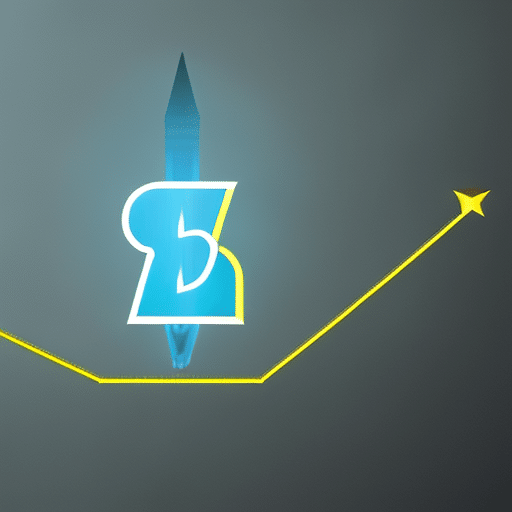You may have heard the old adage, ‘knowledge is power’. When it comes to smart contracts, this couldn’t be more true. Smart contract oracles are powerful tools that can provide an additional layer of security and accuracy to your contracts. Without them, a smart contract would be unable to access any data from outside its blockchain – meaning it would be completely blind. In order to make informed decisions, you’ll need an oracle to bridge the gap between off-chain and on-chain worlds. In this article, we’ll discuss what smart contract oracles are, how they work, their advantages and disadvantages, and much more.
Table of Contents
ToggleOverview of Smart Contract Oracles
Smart contract oracles are like the unsung heroes of the blockchain, enabling transactions to happen between smart contracts and external data sources! They provide a bridge between the world of blockchain and other systems by connecting two otherwise incompatible entities. This verification process is what allows for smart contracts to be executed when certain conditions are met. It is important to note that with any type of connection comes security risks, which is why it is essential that smart contract oracles are properly tested for accuracy before being used in real-world applications. Additionally, special measures should always be taken to ensure that the data provided by these oracles remains secure and reliable, as any tampering could result in significant losses. As such, it is crucial that all users understand both the benefits and limitations of using these services before entering into any agreements related to them. With this comprehensive overview in mind, let’s now discuss different types of smart contract oracles.
Types of Smart Contract Oracles
You may be wondering what types of data a smart contract oracle can access. Generally, they are classified into two categories: Trusted Outside Data and Trusted Internal Data. Trusted Outside Data refers to external information such as real-world events, stock prices, or weather reports which is then fed into the blockchain network. On the other hand, Trusted Internal Data is data that already exists on the blockchain itself – such as transaction records or account balances.
Trusted Outside Data
Trusting outside data is essential for any smart contract project to be successful, so you need to make sure it’s accurate and up-to-date. To do this, off chain analysis should be conducted regularly to verify the accuracy of the data being used. It’s also important to have a multi sig authorization process in place to ensure trustworthiness of the data sources. Additionally, ensuring continued access to reliable APIs and monitoring changes in government regulations are important steps to take when evaluating outside data sources. Lastly, incorporating blockchain technologies such as secure hashes into your oracle system can help guarantee that no modifications have been made since the original source was published.
These steps must all be taken into account when considering trusted external data sources for your smart contract project. Ultimately, having a robust system in place for verifying and authenticating outside data will contribute significantly towards overall success of your project.
Trusted Internal Data
Making sure your internal data is trustworthy is just as critical as verifying external sources. Data privacy and compliance issues need to be taken into consideration when managing internal data. It’s important to have a secure system in place for storing and sharing the data with only authorized personnel having access. Furthermore, all records of who has been accessing the information should be tracked and monitored regularly to ensure there are no breaches of security or other suspicious activities that could lead to a breach of trust. Having measures in place such as these will help organizations maintain trustworthiness when it comes to their internal data sources. With this level of trust achieved, companies can confidently move forward with smart contract oracles, knowing their internal data is reliable and secure.
Advantages of Smart Contract Oracles
Smart contract oracles offer many advantages, such as allowing for trustless transactions and making automated processes simpler:
- Trustless Transactions: Smart contract oracles enable secure data to be transmitted between two parties, eliminating the need to trust a third-party intermediary. This allows for greater security of data, as well as immutable records that are resistant to tampering.
- Automated Processes: By using smart contracts powered by oracles, businesses can automate manual processes and reduce costs associated with administration and human resources. Furthermore, the oracle’s ability to securely source external information eliminates the need for manual workflows.
The use of smart contract oracles also provides a range of other benefits, such as improved transparency and accuracy of data. From these advantages it is clear why smart contract oracles have become a popular choice among businesses looking to streamline their processes. With this in mind, we will now turn our attention to exploring some of the disadvantages of using these technologies.
Disadvantages of Smart Contract Oracles
Despite the advantages of smart contract oracles, there are some key disadvantages to consider. One disadvantage is that it’s difficult to securely source data from external sources and validate it. With smart contracts, it’s important to ensure that the data being used is accurate and reliable before transactions take place. As a result, complex protocols must be put in place to verify data sources and validate their accuracy. This requires additional development time, resources, and expertise that can prove costly for businesses.
Another challenge with using smart contract oracles is ensuring transparency of data. If an oracle provider fails to disclose where they get their data from or how its been validated, this could lead to inaccurate results which could in turn cause irreparable harm. To avoid these issues, all parties involved need full visibility into the process of sourcing data and validating its accuracy before any transaction takes place. As such, understanding the risks associated with using smart contract oracles is essential for successful implementation. Now let’s look at how these tools can be used effectively in various use cases.
Use Cases for Smart Contract Oracles
Using oracles, businesses can unlock a variety of powerful use cases to automate processes and streamline transactions. Smart contract oracles enable automated access to real-time data from off-chain sources, which allows for smart contracts to be triggered when certain conditions are met. This means that trustless transactions can be initiated on the blockchain without manual intervention. Additionally, by using oracles, businesses can benefit from enhanced security due to the cryptographic protection offered by the blockchain. This makes it difficult for malicious actors to tamper with transactions because all contracts are publicly available on an immutable ledger. Moreover, with the help of secure oracles, businesses can make sure that their smart contracts will always execute as intended – providing an additional layer of confidence in their operations. With these advantages in mind, it is easy to see why many organizations are turning towards smart contract oracles for their automation needs. By leveraging this technology, they can reduce costs while ensuring secure and timely execution of business agreements. Transitioning into the next subtopic about examples of smart contract oracles gives us further insight into how this technology is being used in practice today.
Examples of Smart Contract Oracles
You can experience the power of smart contract oracles in action with various use cases today. For example, you could use oracles to enable automated systems to fetch real-time data from external sources such as stock tickers, sports scores, weather forecasts and more. Oracles are also used to validate digital signatures so that smart contracts can be executed only after an agreed upon condition has been met. Moreover, they can be used for identity verification purposes and even help with payments across different blockchains.
Overall, smart contract oracles provide a great way to bring the world outside of blockchain into it. With their ability to connect blockchains with data sources and automated systems securely without any manual intervention, they offer many exciting possibilities. However, there are potential challenges that need to be taken into account when implementing them which will be discussed next.
Potential Challenges of Smart Contract Oracles
Though they offer many exciting possibilities, implementing smart contract oracles can pose potential challenges. The most significant risk is that of security – when data passes from the real world to a blockchain-based system, it requires trust in its accuracy and integrity. In addition, when data is passed through multiple third parties, and when those third parties have less than perfect security protocols, there is an increased possibility of malicious actors being able to gain access to the data and alter it for their own benefit. Data integrity becomes even more critical as blockchain technology continues to evolve and become adopted by businesses across different industries. As such, organizations must take extra steps to ensure that the data passing between them remains secure at all times.
Furthermore, since smart contracts are designed to self-execute once certain conditions are met, any discrepancies or errors in the underlying code can lead to major problems down the line. This makes it essential for developers to be diligent about testing their code before deployment in order to avoid costly mistakes. Additionally, if the sources providing external data are unreliable or inaccurate then this could cause serious issues with how contracts execute which will need careful monitoring by developers during their maintenance phase after deployment.
Overall then, despite offering many advantages over traditional methods of contract management there are a number of potential risks associated with using smart contract oracles that need careful consideration before implementation; continuing on from this however is an exploration into the future of such technology…
The Future of Smart Contract Oracles
As the use of blockchain technology expands, so too does the potential for smart contract oracles to further enhance its applications. For instance, a logistics company could use such technology to automatically update customers on delivery times based on real-time data from their trucks’ GPS systems. Smart contract oracles are expected to become more popular in the near future due to several advantages:
- Data Security: Their decentralized nature ensures that data is securely stored and can be easily accessed by authorized parties without interference from third-parties.
- Interoperability Standards: The ability to link existing systems with those built using blockchain technology makes them attractive for enterprises and other organizations looking for ways to make their operations more efficient.
- Cost Savings: Smart contracts reduce administrative costs by eliminating intermediaries and enabling automated transactions.
The key challenge facing the adoption of smart contract oracles lies in finding solutions that guarantee data security while also providing interoperability standards that ensure consistent quality across different platforms. As these hurdles are addressed, it is likely that we will see an increased uptake of smart contracts in a variety of industries as businesses look for new ways to streamline their operations and reduce costs. With this in mind, it’s clear that the future of smart contract oracles looks bright.
Benefits of Implementing Smart Contract Oracles
Smart contract oracles offer incredible advantages that can streamline operations and slash costs, making them a no-brainer for businesses looking to stay competitive. Decentralized oracles provide trustless data which eliminates the need for a third-party intermediary, meaning businesses can create autonomous agreements with less hassle and security threats. This allows enterprises to cut down on operational expenses due to fewer manual processes and better reliability of data. Additionally, smart contract oracles allow for more secure transactions since they are programmed into the blockchain network and cannot be tampered with by malicious actors. All these benefits make implementing smart contract oracles an attractive option for businesses who want to remain competitive in the digital age. With their ability to automate tedious processes while providing trustless data, it is easy to see why so many companies are investing in this technology. As such, transitioning into how best to implement smart contract oracles is a logical next step.
How to Implement Smart Contract Oracles
Now that you understand the benefits of implementing smart contract oracles, let’s explore how to actually implement them. This process relies on trust models and external validation in order to ensure that the data is secure and reliable. Factors such as security, accuracy, privacy, scalability, and cost must all be considered for an effective implementation.
When it comes to trust models, the system must determine which parties can access or write data into a blockchain network — only trusted parties with verified identities should have access. Additionally, external validation protocols should be used to ensure that data sources are secure and reliable before they are used within a smart contract. To make sure these protocols are optimized for various use cases, it is important to consider factors such as privacy regulations when designing them. Ultimately, by being aware of these considerations when implementing smart contracts oracles you can create a more secure system for your users. Now that we have an understanding of how to implement smart contract oracles let’s take a closer look at regulations around this technology.
Regulations Around Smart Contract Oracles
With the increasing use of smart contract oracles, you must consider the regulations around this technology in order to create a secure environment for your users. Data privacy is an important factor to consider when creating a smart contract oracle as it affects the trustworthiness and security of the platform. Governance rules must also be established in order to ensure that all stakeholders involved in the agreement are aware of their responsibilities and rights. Additionally, there should be clear communication channels between all parties so that any disputes can be resolved quickly and fairly. With these regulations in place, you can ensure that your smart contract oracles run smoothly and securely for everyone involved. To access further resources on regulations related to smart contract oracles, continue reading below.
Resources
Discover the resources available to help you understand all the regulations related to smart contract oracles and ensure your platform is secure and trustworthy. By utilizing data visualization tools, blockchain security tutorials, and official documentation from governing bodies, you can gain an in-depth understanding of the rules that surround smart contract oracles. Consider using:
- A data visualization tool such as Tableau for a graphical representation of your analytics
- Blockchain security tutorials like those provided by Blockgeeks to learn best practices for protecting your network from threats
- Official documentation from relevant governing bodies such as the SEC for regulatory requirements on blockchain technology.
With the right resources at hand, you can have peace of mind knowing that your platform is compliant with all applicable laws. From there, explore the next step to gain greater knowledge about this technology: a glossary of terms related to smart contract oracles.
Glossary
Now that you have a better understanding of resources related to smart contract oracles, it is also important to understand the terminology involved with this topic. Decentralized oracles are entities responsible for providing data from external sources to smart contracts on the blockchain. This source of data can be anything from currency exchange rates and stock prices, to weather forecasts and sports scores. Automated validation ensures that the data provided by decentralized oracles is accurate and reliable before being used in a smart contract. This means that any inaccurate information will not be accepted, allowing for trustless transactions between two parties.








